- Home
- Bryce Courtenay
The Story of Danny Dunn Page 2
The Story of Danny Dunn Read online
Page 2
While Half Dunn drank more than his fair share of the profits and dispensed bonhomie and mindless opinions on everything from the perfidy of politicians to the training of ferrets, his wife, Brenda, put in a fifteen-hour day ending at 8 p.m. when she’d finally balanced the day’s receipts, checked the cellars, cleaned the beer pipes and personally polished the bar surfaces. Tommy O’Hearn was right to treat her with respect. Nothing escaped her. Before the cleaners arrived, she always removed the Scott industrial toilet rolls, then replenished them after the cleaners had left, to prevent their being replaced by near empty ones brought from home in a cleaner’s shopping bag. The Great Depression had left a residue of bad habits among basically honest people, and Brenda was onto every cleaning shortcut and sly trick in the trade.
Even the bartenders knew better than to pocket the cash from the odd middy. Brenda had been known to stand on a bar stool and punch the daylights out of a six-foot barman she’d caught short-changing a drunk patron. She ran a tight ship and a spotlessly clean pub. While she left the bragging to Half Dunn, she would occasionally claim, with justifiable pride, that her last beer at night tasted as fresh as her third one (the first two were always discarded), and no one ever disputed this.
But generally Brenda came as close as a woman may to being taciturn. She was different in almost every way to Half Dunn. Just five foot and half an inch, at seven stone she was as petite as Mick was grossly fat. Even though Michael Dunn’s name appeared above the main entrance to the pub as the licensee, she was most definitely the boss. While she was as conscientious as any wife in the ‘Yes, dear’ department and never put her husband down in public, it was apparent to the regulars that his opinions counted for bugger-all. She opened the pub doors precisely at ten each morning and she’d show the last drunk the pavement at precisely five minutes past six each evening; in between opening and closing, the decisions she made ensured that the Hero was one of the most successful and best-run pubs on the peninsula.
Brenda Dunn fuelled all this effort with half-consumed cups of sweet black tea and Arnott’s Sao biscuits, ten of which she’d place in her apron pocket of a morning. When the pub closed she would repair to the backyard where three magpies waited expectantly for the brittle Sao crumbs. She also smoked three packets of Turf Filters a day. More precisely, she’d light sixty fags, take an initial puff to get each one going, then carefully rest the cigarette on one of the heavy glass ashtrays advertising a brewer or whisky distiller, which she placed, she always imagined, at points she frequently passed. More often than not, as she reached for the cigarette to take a second drag, it would have collapsed into a fat grey ash worm. Some clever patron once worked out that if she got an average of one and a half drags from every fag and there were twenty potential puffs in each, she’d only smoked four and a half cigarettes a day.
What Tommy O’Hearn didn’t know, was that Brenda’s character had been forged out west in a poor farming family, where hard, thankless work began at dawn and ended after dark. There was never time for idle chatter, even about rain, that rare and precious, almost legendary occurence. She’d lost her two elder brothers in the Great War, one at the Somme and the other, who’d come through the horrors of trench warfare relatively unscathed, in the Spanish Flu epidemic that raged through Europe in late 1918 and in the next two years spread around the world killing more than twenty million people. The eldest of the three remaining daughters, Brenda was sent at sixteen to work as an upstairs chambermaid in Mick’s parents’ pub, the Commercial Hotel in Wagga Wagga. Lonely and entirely ignorant about sex, within six months she was up the duff to eighteen-year-old Mick Dunn, their only son.
He would come into her tiny upstairs bedroom at the crack of dawn before anyone was up, gently shake her awake, then sit on the end of her narrow iron bed and invent outrageous and amusing stories about the town’s notables, soon sending her into stifled giggles. An initial bold wake-up kiss on the forehead had developed over time into a cuddle on a freezing winter’s morning when she’d let him creep under the bedcovers. Mick was already a huge lad, six foot one inch and starting to go to fat. The bed was very narrow, and the tiny housemaid failed to understand that the fumbling, kissing and rearranging of their bodies was bound to lead to penetration and, for Mick, almost instant ejaculation.
Soon after Brenda arrived, the regular barmaid fell ill and Brenda was called from her duties upstairs to clean the tables, wash glasses and keep the bar area clean while Dulcie, Mick’s mother, took over the bar. By the end of the week Dulcie Dunn was so impressed with Brenda that she kept her downstairs and Fred raised her salary by two and sixpence a week. ‘If Bob Barrett asks, you’re to say you’re eighteen,’ she’d instructed Brenda. A rise in pay to pass on to her family was all the incentive their young housemaid needed to conceal her age from the local police sergeant. Besides, the downstairs main bar was far more interesting than making beds, sweeping and scrubbing floors, and cleaning out toilets and bathrooms. Never again would she have to scrub the upstairs passage on her hands and knees, enduring the leers and sly winks from commercial travellers bound for the bathroom with only towels that bulged with their early-morning erections wrapped around their waists.
Brenda proved to be a hard worker, quick to learn, good with the till, and demonstrating remarkable initiative for one so young. She was generally liked by the patrons, had a pleasant but firm way of persuading inebriated drinkers to go home, possessed very nice table manners, was modest, disarmingly shy and scrupulously honest, and was a Roman Catholic to boot. But soon the sharp-eyed gossips and stickybeaks in town started to whisper and point as the diminutive Brenda began to show. Dulcie and Fred were secretly delighted once they learned of the clandestine early-morning coupling. A generous donation to the church building fund allowed Father Crosby to waive the reading of the banns and the wedding proceeded as quickly as possible. Mick, their phlegmatic, indolent and generally useless son, had at least succeeded in sowing the seed for what they hoped would be their first grandson.
Fred and Dulcie Dunn had also married at eighteen and sixteen respectively, though, in their case, from choice rather than necessity. They’d been inseparable since their last year in primary school. Five years after their wedding, they’d taken over the Commercial Hotel from Fred’s parents, and their son, Michael Donovon, was born in January 1900, the year before Federation, ten years after the marriage, when they’d just about given up hope of having a child.
Fred was a big man by most standards and as strong as an ox. Dulcie was long limbed and taller than most of her generation, so it was no surprise when she gave birth to a large child. Michael was the apple of his mother’s eye and spoilt rotten from the very beginning. She would hear no ill spoken of him or his ballooning weight, until at eighteen, she had to face the truth. The army refused to recruit him to fight on account of his obesity. They’d never heard the term before and consulted Dr Light, the family physician, who told them the word basically meant grossly overweight. Dulcie was finally forced to agree with her husband that her precious son was a bone-idle slob and dangerously close to becoming an alcoholic. Fortunately, armistice was declared before the real reason for their son’s rejection was revealed. Mick’s only assets – dubious in a country boy and in particular a publican’s son – were that he was mild mannered (in fact a coward) and could talk the hind leg off a donkey.
Mick and Brenda were married at the newly consecrated St Michael’s Catholic Cathedral on a scorching January Saturday. Brenda’s twin sisters, Bridgit and Erin, were the bridesmaids and Brenda’s father, Patrick O’Shane, gave her away, despite the 104 degree heat, in the same heavy Irish tweed suit, good woollen shirt with starched detachable collar and side-buttoned boots he’d worn when he married her mother Rose in 1895 in the town of Galway on the shores of the River Corrib in County Galway.
However, all the hasty ‘bun in the oven’ wedding arrangements turned out to be unnecessary; at four months Brenda miscarried a
baby girl. Young Dr Light, after performing a curettage, advised Brenda to try to delay a year before the next pregnancy. ‘You’re very small and all the Dunns are big men,’ he warned. ‘You’ll need to be in excellent health.’
Danny Corrib Dunn, nine pounds four ounces at birth, was born on the 4th of July 1920. The long and painful labour was no surprise to Dr Light, nor was the damage to Brenda’s plumbing; he warned her never to attempt to have another child.
Dulcie and Fred were delighted with Danny, apart from the initial shock when the nursing sister unwrapped the swaddling blanket and they observed their grandson’s dark hair, tiny brown fists and olive complexion.
Although Mick’s incompetence couldn’t have had anything to do with the miscarriage, they had nevertheless been secretly worried and then vastly relieved when the second pregnancy turned out well. The marriage had proved fruitful in two ways: a grandson, but also a highly competent daughter-in-law.
By the time he was christened, the baby weighed eleven pounds two ounces and his abnormally large feet protruded from the end of his christening gown. It was impossible to ignore his jet-black hair and olive skin, surprising when both parents were so fair skinned and freckled. Brenda’s hair was commonly referred to as titian and Mick’s was the colour of a red house brick. At the christening party held at the pub afterwards, when the baby had been produced for inspection, Fred had heard one of the inebriated guests snigger, then ask in a loud whisper, ‘Any Abos seen hanging around outside the pub this time last year?’ The publican had grabbed him by the scruff of the neck and sent him out the back door nose first into the dirt.
Brenda, flat as a pancake in front, had no means of satisfying Danny’s voracious appetite, so he was bottle-fed from an early age. Nor was she allowed much time to enjoy her baby. Fred and Dulcie realised that they now had a daughter-in-law who had the basic nous to run the pub, with a bit of training. Fred had always wanted to go on the land up north to breed racehorses, possibly the Hunter Valley, but somewhere close enough to Sydney, and Randwick Racecourse. Dr Light had diagnosed a dicky heart and advised him to remove himself from the daily stress of running a busy pub. Both parents had realised that Mick wasn’t capable of taking over and it had seemed for a time that they would have to sell. But the arrival in their lives of the little Irish lass, now their daughter-in-law, changed everything, and they could begin to plan for a retirement in which Fred could fulfil his long-held ambitions.
Danny was handed over to a young nursemaid and Brenda’s training as a publican began in earnest. Meanwhile Mick was earning the sobriquet Half Dunn, never quite able to complete a given task and spending more and more time on the customer side of the bar, where his elbow and his mouth were the only parts of his rapidly expanding person put to serious work.
Three years into the marriage, when Brenda had assumed almost the entire responsibility for running the pub, and Fred was on the eve of his early-retirement dream, Dulcie was diagnosed with breast cancer.
They had to move instead to Sydney so she could have a mastectomy and undergo the latest radiotherapy treatment. The pair bought a rather grand Federation house in Randwick with the twin advantages of being close to a major hospital and the famous racecourse, where Fred hoped over a few years to establish himself as both a racing identity and a breeder of quality bloodstock if all went well.
They returned to Wagga to say their goodbyes to family and friends and to finally leave the pub in Brenda’s care, although not before the little vixen had handed them a lawyer’s document requiring them to put the pub into their son’s name. In Brenda’s mind this was a necessary precaution. As a child she’d often enough heard the axiom from her mother, Rose, that gambling defeats the rewards of a woman’s hard work, and that horses in particular send families to the poor house, especially the families of Irishmen. Fred’s declared ambition to breed racehorses and his love of the turf concerned her greatly, and she didn’t want a destitute father-in-law and his cancer-riddled wife descending on them and resuming ownership of the Commercial Hotel. One rotten Dunn was enough in Brenda’s life. Mick’s parents still demanded half the monthly income from the Commercial Hotel, even though they were wealthy by the standards of the time, and had been saving for Fred’s dream stud farm all their lives.
Fred agreed to Brenda’s demands, with the proviso that, if the pub were sold before both he and Dulcie died, they would be entitled to half the proceeds. With the change of ownership, there was now a pub in the Dunn name for the third generation, and Fred was justifiably proud.
More hard years followed the drought in the south-west, and while the Commercial Hotel continued to do well, dividing the profits was burdensome. Brenda was still supporting her family on the farm and paying for her twin sisters to attend the Presentation Convent boarding school at Mount Erin. Making ends meet was a constant struggle. Her one consolation was that young Danny was growing into a lively boy – quick, lean, long-limbed, active and intelligent.
No matter how rushed she was at the end of each day, Brenda made sure she read to him in bed every night. Danny, she’d decided, was going to go to university, even if it killed her. She was aware that this was a lofty ambition, well beyond her station in life, and that she could never divulge it to anyone without appearing presumptuous and uppity. She was still regarded by the town’s respectable Protestant families and wealthier Catholics as bog Irish, and definitely from almost the bottom of the working class, despite her new status as a publican. At that time, women like her were not expected to achieve anything through their individual efforts, and to even entertain the possibility was considered immodest, unseemly and suspicious; such women simply married their own kind, bred, cooked, scrubbed, skimped and struggled until they died of overwork and lack of attention.
Brenda had been dux of her small country school when she finished in form three, the level at which most students, having reached the permitted school-leaving age, discontinued their education. Her parents had not attended the end-of-year prize-giving, where she’d received two books by Ethel Turner, Seven Little Australians and Miss Bobbie – the first tangible evidence that she was a bright and clever student.
Shortly afterwards, her parents had received a visit from the district school inspector, Mr Thomas, prompted by the young teacher, Linley Horrocks, on whom Brenda, along with every other girl in her class, had a secret crush.
Horrocks had not himself gone out to see Mr and Mrs O’Shane because he was a Protestant and a Baptist and felt that the much older and more senior Mr Thomas, a Catholic and known to be a prominent lay member of St Michael’s, Father Crosby’s parish in Wagga Wagga, would have much more influence with them.
By his later account to Horrocks, the interview with Brenda’s parents had not gone well. As it transpired, they’d just received the news of their son’s death at the Battle of the Somme.
Brenda had not been permitted to be present at the interview, which had taken place in the tiny front room of the farmhouse, referred to by her mother, with the little pride she had left in her, as ‘the front parlour’. It was only used for the very occasional socially superior guest who visited the lonely homestead.
The curtains were drawn against the fierce sun and the window kept closed to protect the precious brocade curtains, brought from her mother’s home in Kilcolgan, Ireland, so the room was at damn-near cooking temperature. Mr Thomas was clad in weskit and tie, having removed his jacket as a concession to the unrelenting heat, but was decidedly uncomfortable; the inside of his starched collar was soaked, the rim cutting into his neck. His white shirt under the woollen weskit stuck uncomfortably to his stomach as he addressed Brenda’s parents.
‘Mr and Mrs O’Shane, it is not customary for me to travel to a pupil’s farm to talk to her parents,’ he began somewhat pompously. ‘However, in this particular instance I consider it a pleasure rather than a duty.’ He paused for the expected effect, didn’t get a reaction, put it d
own to nerves, then continued, ‘I have, some might say, the onerous task of being the school inspector to all the schools in the south-west of this great state of ours. I say this only to emphasise that I am in a position to witness the progress of several thousand children, some tolerably competent, others, I regret to say, less so.’ He uncrossed his legs and leaned forward for emphasis, his soft hands with their clean nails resting on his knees. ‘But, every once in a while, a rose appears among the thorns. That is to say, an exceptional student.’ He paused for further effect before continuing. ‘I am happy to tell you that your daughter has a very good head on her shoulders. She is, I believe, one of the brightest we have in this part of the state.’ Thomas leaned back, folded his hands over his stomach and beamed expectantly at the two still entirely motionless and expressionless adults.
The school inspector was sitting in one of the two overstuffed armchairs, upholstered in the same brocade as the curtains, while both parents, their backs pressed into straight-backed wooden dining chairs, continued to stare into their laps. It was as if they were yet again facing the bank manager.
Rose O’Shane had perhaps once been pretty, but now her face was work-worn and her pale-blue eyes no longer curious; her hair, pulled back into a hasty and untidy bun, was almost entirely grey, with just the faintest suggestion of her daughter’s lovely titian colour. Patrick, her husband, was bald on top, with a few copper-coloured strands of hair mixed in among the grey. Surprisingly, considering the rest of his raw and sun-beaten face, his pate was smooth and unblemished. The rim of the battered bush hat he’d removed when he entered the parlour had created a clear line across his brow an inch or so below what must once have been his hairline. Above it the skin was undamaged; below it his face was pocked with skin cancers, its peeling, scaly surface bright puce.

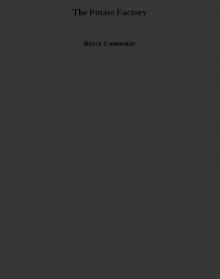 The Potato Factory
The Potato Factory The Power of One
The Power of One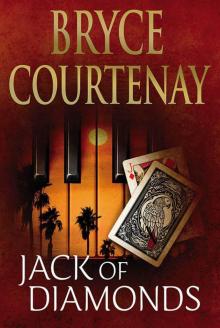 Jack of Diamonds
Jack of Diamonds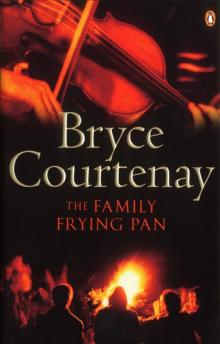 The Family Frying Pan
The Family Frying Pan April Fool's Day
April Fool's Day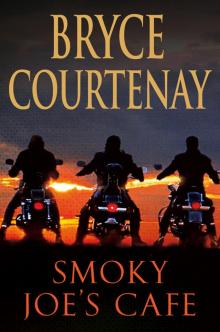 Smoky Joe's Cafe
Smoky Joe's Cafe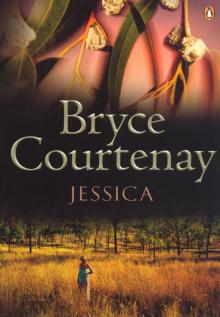 Jessica
Jessica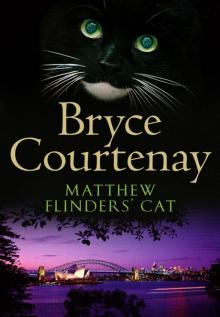 Matthew Flinders' Cat
Matthew Flinders' Cat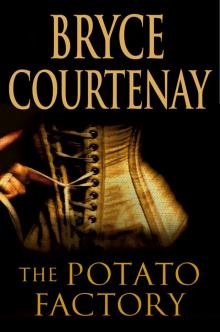 Potato Factory
Potato Factory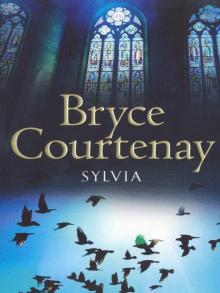 Sylvia
Sylvia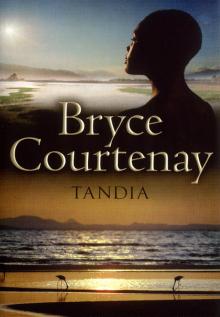 Tandia
Tandia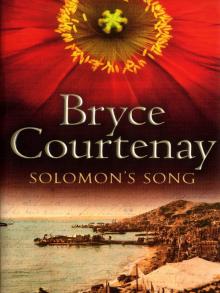 Solomon's Song
Solomon's Song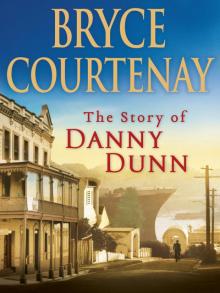 The Story of Danny Dunn
The Story of Danny Dunn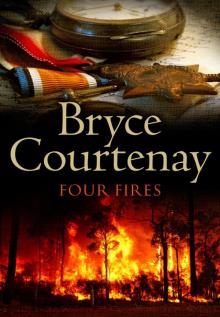 Four Fires
Four Fires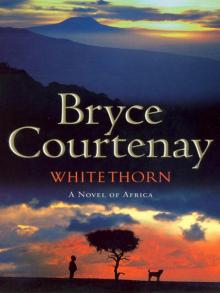 Whitethorn
Whitethorn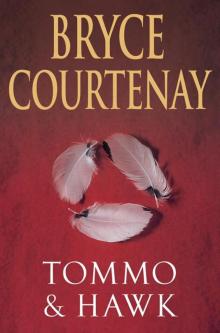 Tommo and Hawk
Tommo and Hawk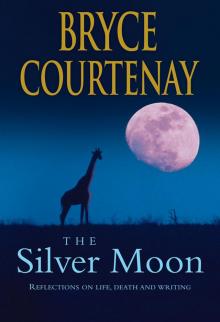 The Silver Moon
The Silver Moon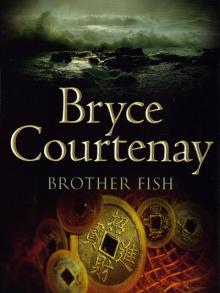 Brother Fish
Brother Fish FORTUNE COOKIE
FORTUNE COOKIE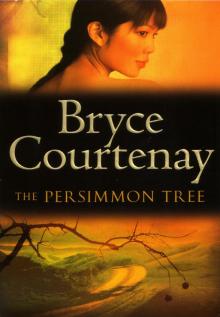 The Persimmon Tree
The Persimmon Tree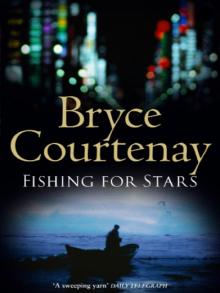 Fishing for Stars
Fishing for Stars